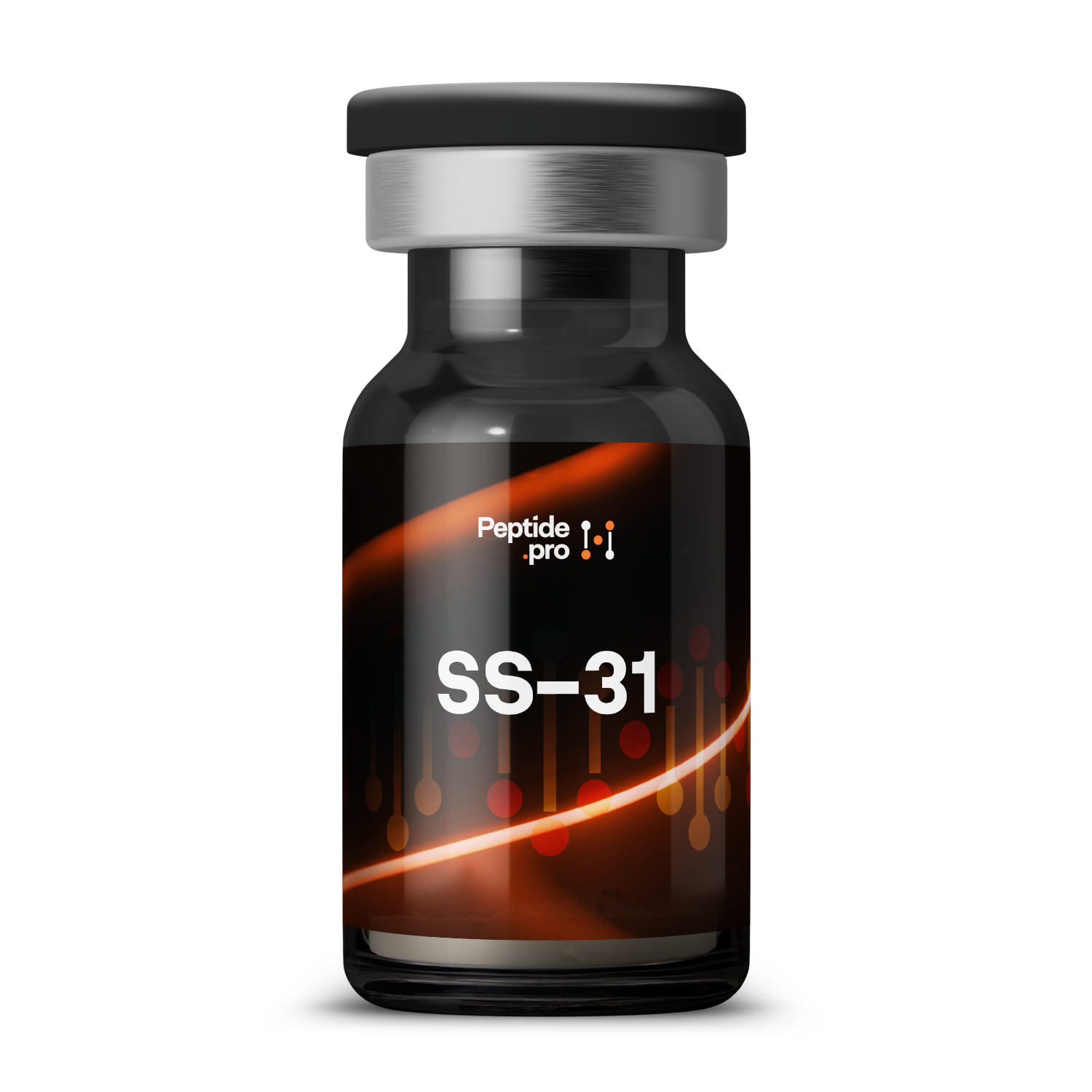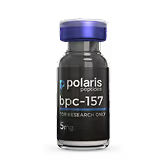SS-31
SS-31 is a tiny four–amino-acid peptide that homes in on mitochondria (the cell’s power plants) to protect them from stress and damage. It binds a special lipid in the mitochondrial membrane to keep energy production running smoothly and reduce harmful free radicals. In research, SS-31 has been shown to improve cell survival under stress, support heart and muscle function, and speed recovery after injury.
Compound Overview
About the product
The peptide sequence is D-Arg–dimethylTyr–Lys–Phe, where “dimethylTyr” is a methylated tyrosine to enhance membrane affinity. It is synthesized by solid-phase peptide methods and purified to ≥95 % purity. The unusual D-amino acid at the N-terminus increases resistance to enzymatic breakdown. Mass spectrometry confirms its correct sequence and purity.
SS-31 accumulates selectively in mitochondria by driven membrane potential and binds to cardiolipin, preventing peroxidation of mitochondrial lipids. This action preserves mitochondrial cristae structure and supports efficient ATP production. By reducing reactive-oxygen–species (ROS) generation, it limits oxidative damage to mitochondrial proteins and DNA. These effects translate into improved cellular energy capacity under stress.
The peptide is studied for its ability to improve mitochondrial function and reduce tissue injury in humans. In early trials, SS-31 enhanced cardiac performance in patients with heart failure and improved muscle endurance in mitochondrial myopathy. Investigations are also under way in eye diseases (e.g., dry AMD) and acute kidney injury. Its broad mitochondrial support may benefit a range of disorders driven by energy failure.
Reported adverse events in human studies have been mild, most commonly headache, nausea, or transient injection-site discomfort. No serious safety signals have emerged in trials lasting up to several months. Laboratory parameters, including renal and hepatic panels, remain stable during treatment. Long-term safety data are still being collected in ongoing studies.
SS-31 is produced by solid-phase peptide synthesis, incorporating one D-amino acid and one methylated residue. After cleavage and deprotection, it is purified by preparative HPLC to research-grade purity. Analytical HPLC and mass spectrometry verify sequence integrity and correct modification. Manufacturing follows peptide-compounding standards under good laboratory practice.
SS-31 is classified for investigational use only and is not approved by the FDA, EMA, or other major regulators. It is available exclusively through clinical trials under investigational new drug (IND) protocols. No commercial or over-the-counter formulations exist. Use outside approved research settings is prohibited.
Human studies have administered 0.05–0.25 mg/kg via subcutaneous or intravenous infusion once daily. Cardiac trials typically use 0.1 mg/kg daily for four weeks, while ocular studies apply 0.05 mg/kg twice weekly. No standardized dosing guidelines exist outside these protocols. All administration must adhere to trial-specific schedules.
- Do use only within IRB-approved clinical-trial protocols with medical oversight.
- Do monitor cardiac, renal, and hepatic function during treatment.
- Don’t combine with other investigational mitochondrial agents off-protocol.
- Don’t administer outside of ethically approved research frameworks.
- Q: Can SS-31 reverse existing mitochondrial damage?
- A: It can reduce ongoing oxidative damage and improve function but may not fully reverse chronic injury.
- Q: How soon are effects seen?
- A: Improvements in mitochondrial biomarkers and tissue function appear within days to weeks.
- Q: Is it suitable for all mitochondrial diseases?
- A: Its efficacy may vary; trials are focused on specific conditions like heart failure and muscle myopathies.
For research use only. Not approved for medical use.


